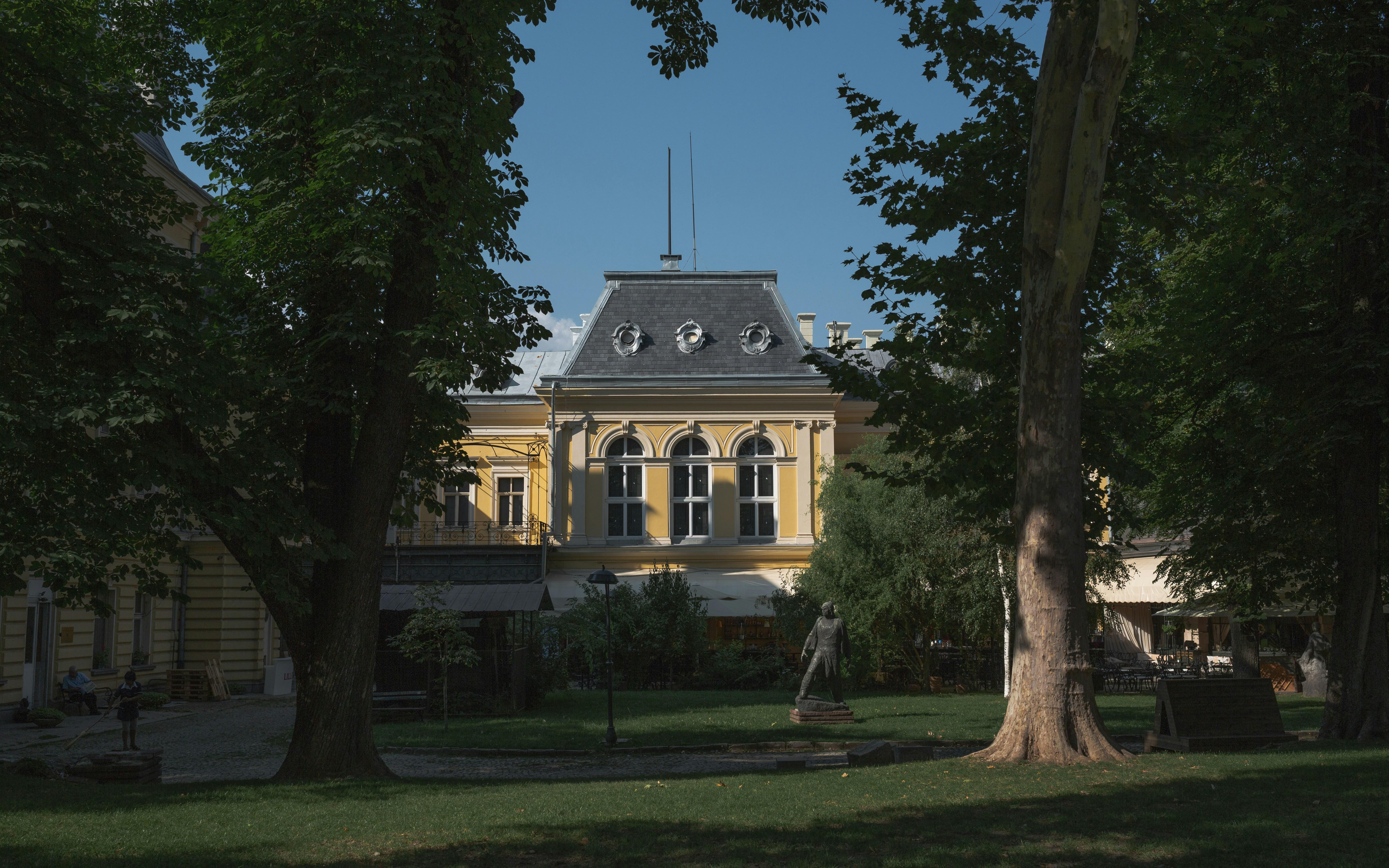In the realm of cinema, where storytelling meets visual artistry, few names spark as much debate as Lost in Translation“>Sofia Coppola. A director whose work is often described as a delicate dance between the ethereal and the existential, Coppola has carved a niche that is both admired and scrutinized. Her films, with their signature contemplative pace and dreamlike aesthetics, have garnered a devoted following. Yet, they also provoke a question that lingers in the corridors of film criticism: Is Sofia Coppola a great director in her own right, or does her acclaim rest on the gilded laurels of her lineage? Born into the illustrious Coppola family, she has inherited a cinematic legacy that few can claim. But does this legacy illuminate her path or cast a shadow over her achievements? In this exploration, we delve into Coppola’s oeuvre, examining whether her unique voice in film stands as a testament to her own talent or if it is simply an echo of her family’s fame.
Exploring the Cinematic Legacy of Sofia Coppola
In the realm of modern cinema, Sofia Coppola’s work stands out as a testament to her unique vision and storytelling prowess. While her lineage as the daughter of legendary filmmaker Francis Ford Coppola cannot be ignored, her filmography speaks volumes about her distinct voice. Coppola’s cinematic style is often characterized by its introspective nature, nuanced characters, and a palpable sense of melancholy. Through films like The Virgin Suicides, Lost in Translation, and Marie Antoinette, she has created a body of work that explores themes of alienation, identity, and the quest for meaning in a world filled with contradictions.
- Thematic Consistency: Her films often delve into the complexities of human relationships and the subtle intricacies of personal growth.
- Visual Aesthetic: Coppola’s use of color, light, and sound crafts an immersive experience that invites viewers to linger in her worlds.
- Narrative Style: Her narratives are known for their deliberate pacing and an emphasis on mood over action.
While some critics argue that her success is partly due to her famous last name, Coppola has undeniably carved out her own niche in the industry. Her films have garnered critical acclaim and numerous accolades, including an Academy Award for Best Original Screenplay for Lost in Translation. Whether she is considered a great director or merely a product of her environment, there’s no denying that Sofia Coppola’s contributions to cinema are both significant and enduring.
Examining Talent Versus Heritage in Filmmaking
When evaluating the contributions of Sofia Coppola to the cinematic world, one must carefully navigate the interplay between inherited privilege and personal prowess. Sofia Coppola, daughter of the legendary director Francis Ford Coppola, undeniably benefited from a background rich in cinematic legacy. Yet, reducing her achievements to mere nepotism overlooks the distinctive qualities she brings to her films. Her directorial ventures, such as The Virgin Suicides and Lost in Translation, are marked by a unique aesthetic and narrative style that reflect her personal vision. These works have been lauded for their subtle emotional depth and introspective nature, carving out a space for her in the film industry that is uniquely her own.
In assessing her place among the greats, it’s crucial to consider:
- Narrative Craftsmanship: Coppola’s films often explore themes of alienation and identity with a delicate touch, capturing the nuances of human experience.
- Visual Style: Her use of color palettes and framing contributes to a distinct visual identity, setting her work apart from others.
- Cultural Impact: Her films have sparked conversations about gender roles and existential ennui, resonating with audiences worldwide.
Thus, while her heritage has undeniably provided her with opportunities, it’s her own talent that has allowed her to forge a path in the world of filmmaking that stands independent of her familial ties.

The Artistic Impact of Sofia Coppolas Directorial Vision
Sofia Coppola’s films have consistently showcased a distinct aesthetic and narrative style that sets her apart in the cinematic world. Her ability to create a unique atmosphere and evoke deep emotions through visual storytelling has had a profound impact on contemporary filmmaking. Coppola’s directorial vision is often characterized by her use of muted color palettes, minimalistic dialogue, and an emphasis on mood over plot. This approach allows her to delve into the inner worlds of her characters, offering audiences an introspective look at themes of isolation, identity, and the human condition.
- Visual Aesthetics: Her films often feature a dreamlike quality, achieved through careful attention to lighting, composition, and production design.
- Soundtrack Choices: Coppola’s keen ear for music enhances the emotional depth of her films, with soundtracks that often become iconic in their own right.
- Character Focus: Her storytelling prioritizes character development and personal journeys, providing a more intimate viewing experience.
While some may argue that her success is partly due to her famous lineage, Coppola’s artistic contributions cannot be overlooked. Her films resonate with a particular sensibility that captures the subtleties of life, earning her a place in the discussion of great directors. Through her unique perspective and commitment to her craft, Sofia Coppola continues to leave an indelible mark on the art of filmmaking.

Balancing Fame and Skill in Sofia Coppolas Career
Sofia Coppola’s career in the film industry is a fascinating study of how familial ties and individual talent intertwine. As the daughter of acclaimed filmmaker Francis Ford Coppola, she was introduced to the world of cinema from an early age, which inevitably raises questions about the impact of her lineage on her success. However, to evaluate her career solely through the lens of nepotism would be to overlook the unique voice she has cultivated in her work.
- Distinctive Style: Sofia Coppola’s films are known for their introspective narratives and dreamy aesthetics, marking her distinct style that stands apart from her father’s legacy.
- Critical Acclaim: Her films such as “Lost in Translation” and “The Virgin Suicides” have received widespread critical acclaim, showcasing her ability to craft compelling stories.
- Challenges of Expectations: While her background offered her opportunities, it also came with immense pressure to prove herself beyond her family name.
Ultimately, Sofia Coppola’s journey illustrates the complex dynamics of fame and skill. Her ability to navigate these waters and carve out her own niche suggests that her contributions to cinema should be evaluated on their own merit, beyond the shadow of her illustrious family background.









